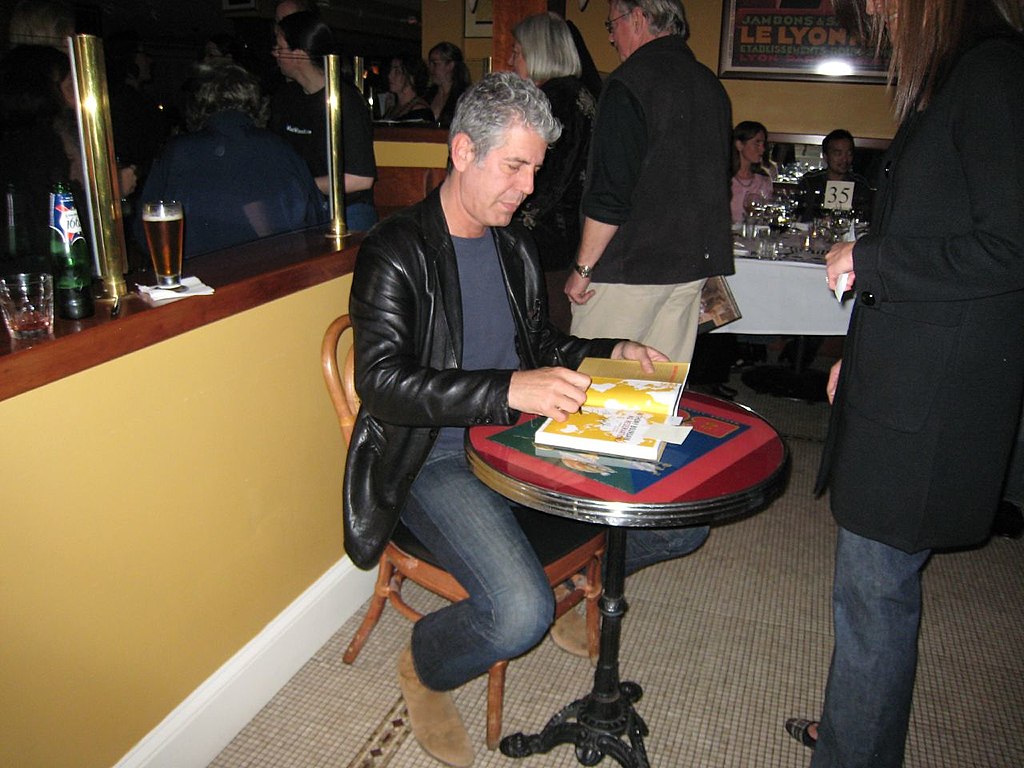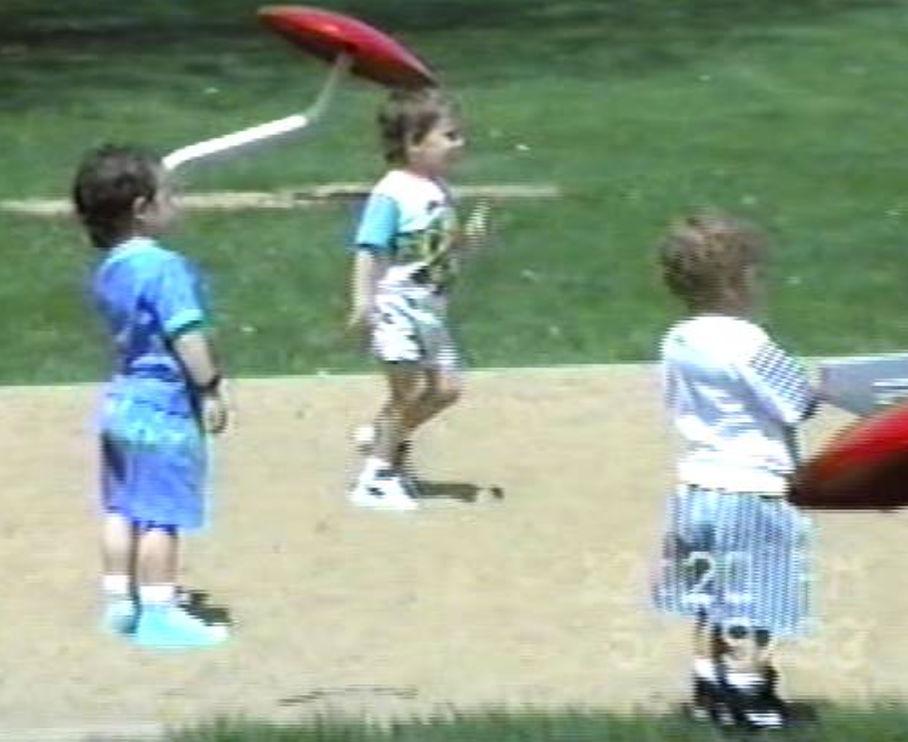We may earn an affiliate commission from any company linked to in this post.
Anthony Bourdain wasn’t supposed to be famous. He wasn’t polished, PR-friendly, or brand-safe. He was a self-professed junkie cook who stumbled into the literary spotlight with Kitchen Confidential, then carried that raw, unfiltered voice into every project that followed—books, shows, essays, interviews, and conversations over meals in war zones and roadside diners. And somehow, against every expectation, by his early 40s he became one of the most beloved cultural dudes of the 21st century.
But why?
What made this deeply flawed, sarcastic, brooding man so emotionally resonant to millions? Why do people love Anthony Bourdain like he was a close friend, a father figure, or a brother—despite only knowing him through pages and screens?
A Man of Contradictions
Anthony Bourdain was a man of contradictions, and he never tried to hide it. On-screen he was cool, quick-witted, and impossibly well-read. Off-screen—or more accurately, within the lines of his essays and voiceovers—he admitted to being insecure, obsessive, impulsive, and frequently depressed. He wore his flaws in the open, sometimes with shame, sometimes with a wry grin, but never with denial.
This contradiction, of a man who was at once confident and crumbling—was part of the magnetism. He didn’t perform perfection. He didn’t try to teach us how to be better. He just was, and let us witness the mess of it all.
Not Just a Host. A Mirror.
Many people relate to Bourdain not because he was some idealized version of a traveler or chef or writer, but because he showed us a version of ourselves—flawed, searching, hopeful, skeptical, always hungry for meaning. His books and shows didn’t just document food; they documented humanity. And he didn’t put himself above it. He embedded himself in it.
Bourdain sat on plastic stools in alleyways with fishermen in Vietnam. He broke bread with families in Lebanon while bombs exploded in the background. He treated line cooks, refugees, and former enemies with more respect than he gave to any suit in a boardroom. That wasn’t branding—it was conviction. And he let us into that worldview, one episode and essay at a time.
The Emotional Blueprint Was Always There
Some were surprised by the tragic end of Bourdain’s life, seeing it as inconsistent with his confident, sharp-tongued TV persona. But for many long-time readers and viewers, it wasn’t surprising. He told us, over and over again, about his demons: the failed suicide attempts, the guilt, the self-loathing, the addictions, the bad decisions made in search of approval or escape.
He was always signaling the depth of his struggle. And perhaps that honesty made his audience feel less alone in their own.
He Wasn’t a Guru. He Was a Human.
There’s a temptation, when someone dies young and tragically, to make them into a martyr or a moral symbol. But Bourdain was never about that. He probably would’ve hated the idea of being a “lifestyle guru.” He rejected phoniness at every turn.
Yet, what makes Bourdain’s impact so enduring is exactly that he wasn’t trying to teach us how to live. He was just living—messily, curiously, vulnerably—and giving us permission to do the same.
The Personal Resonance
To some, he was just a host who made great food shows with bite. But for many others—especially people who struggled with addiction, depression, alienation, or being outsiders in their own lives—he felt like one of the only public figures who got it. His self-awareness was cathartic. His pain was familiar. And the way he kept going, trying to do right by others, even when he couldn’t figure himself out, was quietly heroic.
As one former line cook put it: “He made me proud to be in the kitchen. He made it feel like I was part of something real.” That feeling—of being seen—is no small thing.
A Legacy of Compassion and Curiosity
At his best, Anthony Bourdain taught us to be less afraid. Less afraid of people who were different. Less afraid of the unknown. Less afraid to admit we were scared or lost or messed up.
He showed us the beauty in the everyday, the poetry in the profane, and the common humanity shared over shared meals. He wasn’t just a storyteller—he was a connector. Between cultures, between strangers, between the viewer and the world.
His loss hit hard not because he was a flawless idol, but because he was one of us. Trying to make sense of the world. Trying to leave it better. And sometimes failing. But still trying.
Lastly, he was an awesome autographer

Tony was like Mickey Mantle when it came to autographs. He signed a lot, but because he was a people pleaser and loved making genuine human connections, even if for a brief moment by signing one of his books for each fan that walked up to him. There always must have been the understanding that doing signing events and giving speeches was far better than working in a sweaty kitchen. His autograph- authentic ones (beware of the fakes)- are unique and very skilled looking compared to other celebrities. They became very swirly when Medium Raw was released, with impressive looking circles followed by a prominent ‘B’ for his last name.
Image under a CC BY 2.0 license (no changes to image) and flickr image under a CC BY 2.0 generic deed license (background removed and scaled down)

Facebook Comments